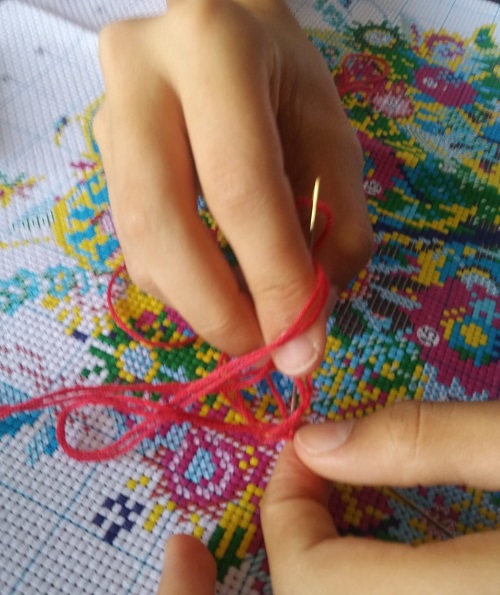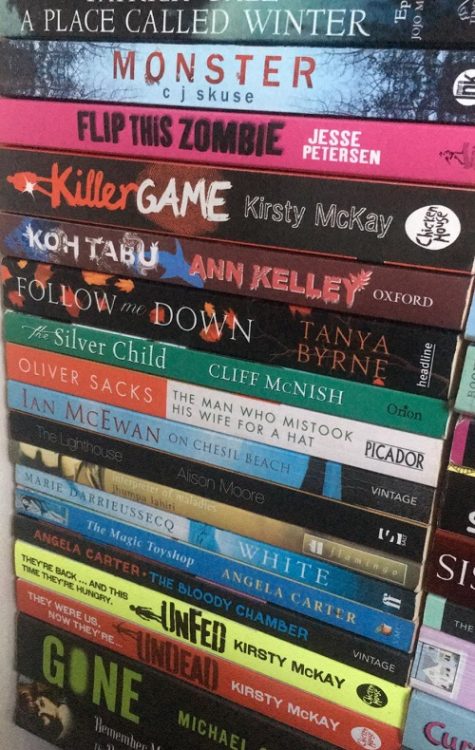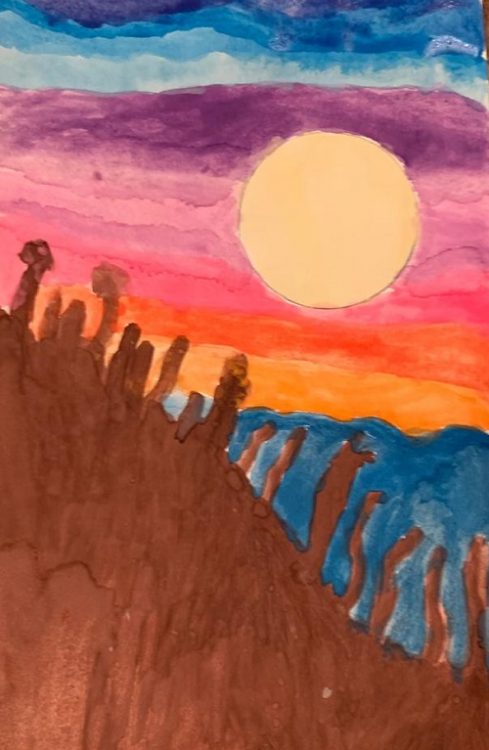
10 things to do if you’re stuck at home
Winter can be a gloomy time of year, with the cold weather and short days, especially if you’re unable to get out of the house. But there are ways to lift your spirits and enjoy your time at home. Wheelchair user and writer Raya details 10 things she does to brighten her winter days.
If you, like me, struggle to go out on rainy, snowy or windy days due to respiratory and mobility issues, then undoubtedly there will be days or even weeks where you won’t be able to leave the house.
Only last month I had a very bad infection that lasted about three weeks. During that time I couldn’t go out. It was frustrating. But there has been an upside – time to do some of the things I love.
To save you from the boredom that I have had to endure, I have compiled a list of things to do during those cold winter days or if you are ill and not able to go out.
Listen to music and podcasts
I have to be honest, I can’t live without music. Whatever I am doing I need to have music on in the background. Whether I am reading, working, writing or playing games, music is my constant companion. It always has the power to take me to a different state of mind.
I am not as good at listening to podcasts, but I know that many people love them. With so many different topics on offer to choose from, they can provide the perfect escape.
If you want somewhere to start, Disability Horizons’ Co-founder, Martyn Sibley, has done a series of podcasts with well-know and influential disability figures.
Sew and knit

During my childhood, I loved sewing and creating things. I also tried learning to knit but found it too tricky as it requires the use of both hands, which I struggle with. So, cross-stitch became my favourite form of craft.
Because I am not a fan of complicated designs, I opt for children’s tapestry patterns that are already drawn out. All these need are for you to cross the stitches – simple.
But there is a wide range of different and complex forms of textile designs, so there are lots of options to choose from. There are even sewing machines – such as those without foot pedals – and sewing aids that enable you to use them, regardless of your disability.
If you’d like to pursue knitting, there are also knitting aids available to help with a variety of needs.
Go on social media
You might wonder how will social media can keep you occupied, especially as many regard it as a toxic tool that can increase depression, anxiety and panic attacks. But I am a great believer in ‘balance and moderate actions’.
On social media, I choose who I follow very carefully and its a mixture of footballers, celebrities, funny accounts, disability-related organisations and figures. Curated like this, it is a great tool enabling you to know what is a hot topic and what is going on in the world from different perspectives.
It’s also a great place to meet and connect with others, either friends and family or people from all across the world. If you’re looking to find people in a similar situation to you, why not explore Disability Horizons’ community in our private DHorizons Tribe Facebook group.
And for news, advice, entertainment and opinion in the disability world, follow Disability Horizons on Twitter @DHorizons, Facebook or Instagram.
Do an online course
If you love being productive, why not use periods of time at home to learn new skills or immerse yourself in new topics to keep you entertained and to add something new to your CV.
There are a few sites that offer some free or cheap online courses, such as Future Learn, Udemy, Google Digital Garage and there are also a number of universities that offer a few online courses for free.
Read

If, like me, you love reading but have a bad habit of filling up your bookshelf or eBook yet never getting around to actually reading, then now is your chance.
I used to love holding a book and turning over the pages, so was very anti an eBook. But over the last few years, I have been struggling to hold books, especially in bed. That is when I realised that a Kindle was my saviour.
If you find holding a Kindle or even the reading itself tricky, most books are now available as audio versions. And if you need book recommendations, why not start by checking out our list of 8 disability-related books.
Try accessible gaming
Although I am not a massive gamer myself, I do know that with adaptive controllers and other gadgets, disabled people are able to enjoy all sorts of games.
If you’re interested in gaming, read our recent article on accessible Playstation, Nintendo and Xbox controllers. But be aware that it can take a good few hours of your day – in a good way!
For me, I enjoy the more basic online games, such as Candy Crush, Wordscapes, Bingo, Gin Rummy and Ludo. They are fun and keep you distracted for a fair while.
If none of these games suit your interests, check out our article on 10 fun accessible game and activity apps. You can also head to the App Store (for iPhone) or Google Play (for Android), type in ‘games’ and a whole list will appear for you. Just be aware that some are free (although they will have ads) but for others, you’ll have to pay.
Volunteer
Doing volunteer work is a great way to pass the time. It keeps you active and stimulates your brain, plus gives you regular contact with people.
You might think that volunteering involves long hours of commitment or being out of the house. On the contrary, the great thing about volunteering is that you are in control of the time you want to devote and you can do it from home.
I usually volunteer as a writer or translator as I am fortunate enough to have knowledge of two languages. In the past, I have volunteered with charities to research, edit and write various tasks.
Disability Horizons is always looking for volunteers for a variety of projects, so if you’re interested, get in touch by emailing editor@disabilityhorizons.com.
Create art

Again, it’s funny how in your childhood you have so many different hobbies, yet when you enter adulthood, these hobbies seem to decrease and eventually vanish. But thanks to my niece and nephew, who spend the entire summer holiday with me, I have rediscovered my love for colouring and painting.
I am not a great artist, in fact, I suck at it! But who cares. It’s fun and quite therapeutic, plus it keeps me occupied for a few hours. It is also important to do different things to keep you simulated.
Watch TV shows, films, documentaries and football
Sometimes the best time to catch up on shows and films that you never got the chance to see is during those cold winter days. If you have Netflix or Amazon Prime then you will have plenty of choices to keep you busy for a fair while.
But you don’t really need to pay when you can view BBC, Channel 4 and ITV shows on-demand – although you will have to put up with adverts on the latter two. They all have box sets of dramas, documentaries, reality shows, soap operas and much, much more to keep you occupied for hours.
If that does not suit your tastes, you can find a whole host of videos on Youtube. If you are a football fan, then you can re-watch classic football matches on Youtube – that’s how I spend most of my time.
Write
This is one of my greatest passions, so it is something I do daily. For variety, I like to try different methods of writing, so instead of always writing blogs or articles, I keep a diary. I use it as short letters to my niece, who lives in another country. It’s my way of ‘talking’ to her and leaving her a little advice and guidance.
In the past, I have also tried writing short stories. I soon realised that it was not really my preferred option for writing. But I wouldn’t have known that if I hadn’t experimented, so I recommend you do so until you find what you are most comfortable with.
You can even try writing for Disability Horizons. Just email editor@disabilityhorizons.com if you are interested or have any ideas. The team can offer advice and tips, so don’t worry if it’s not something you have done before.
And finally, if you can get out…
Although it’s not always possible, if you can, I do urge you to go out, even for a short while. Dress well, keep warm and use a taxi to go back and forth.
If you’re looking for something to do, check out our monthly round-up of cultural events. The majority are indoors, so you can have a change in environment and routine without being out in the cold too long.
By Raya Aljadir
More on Disability Horizons…